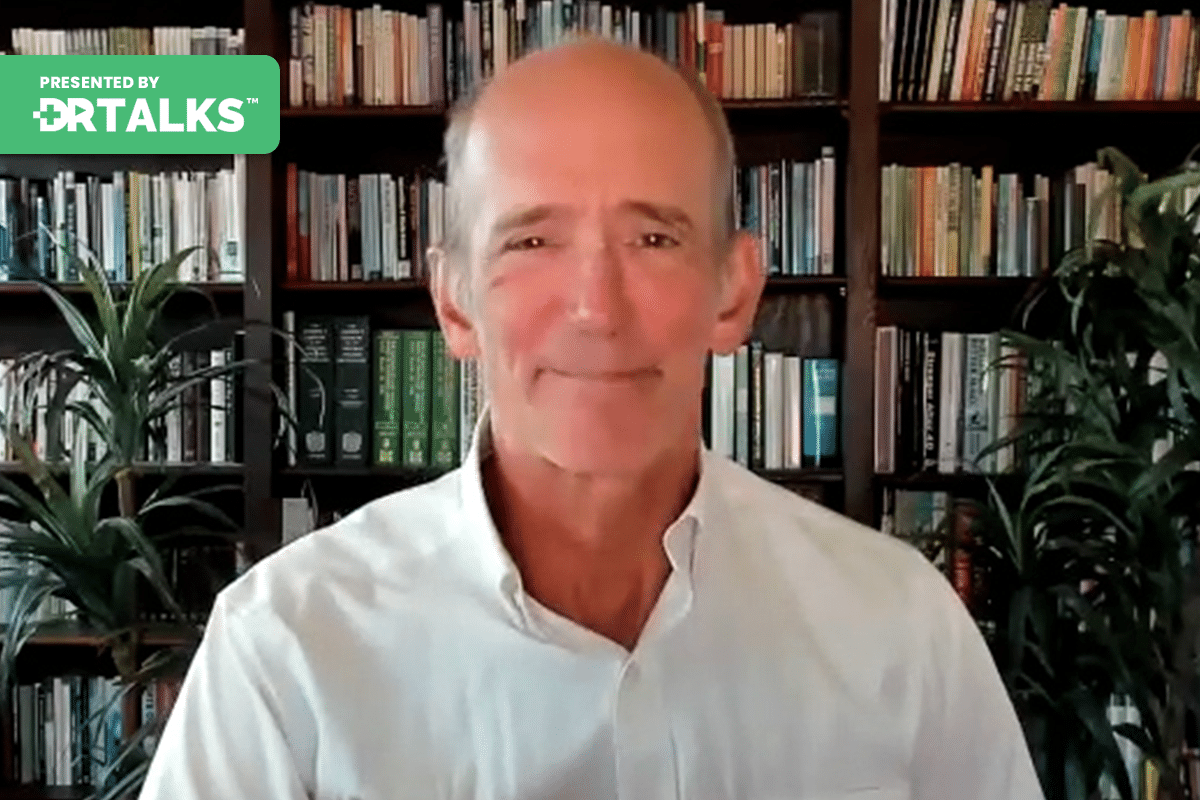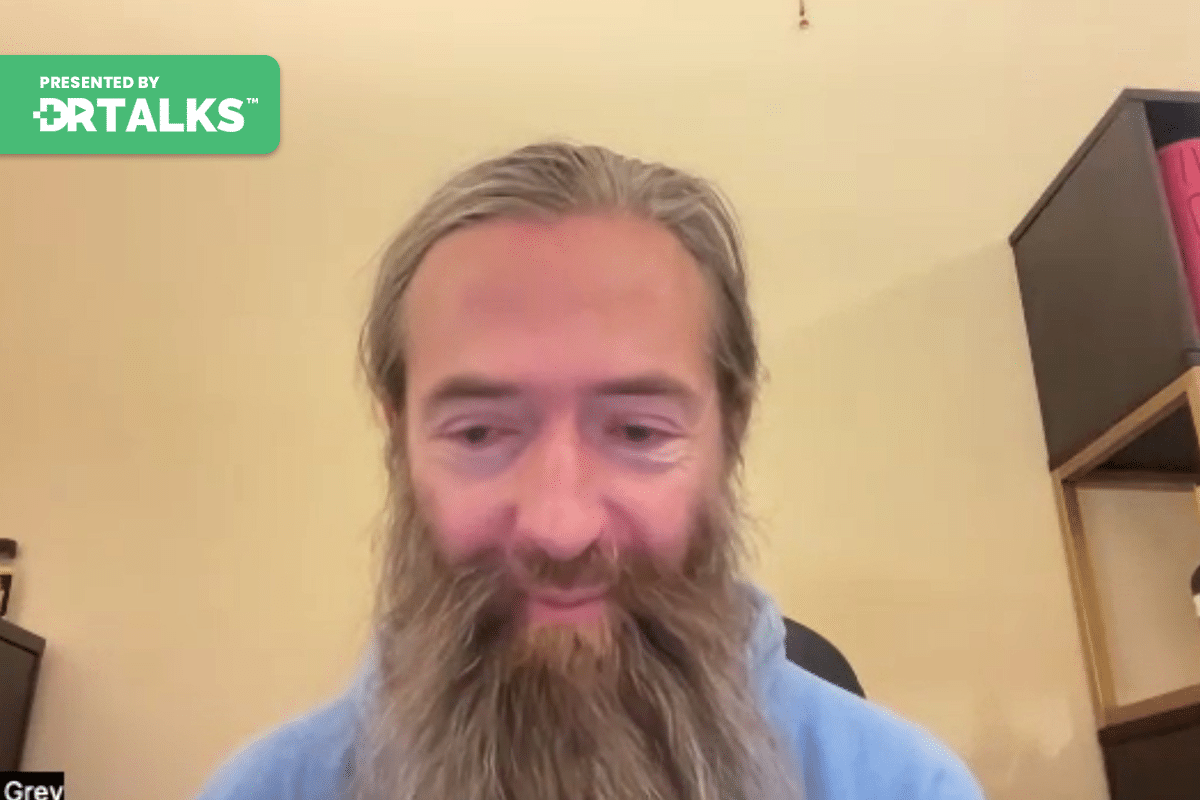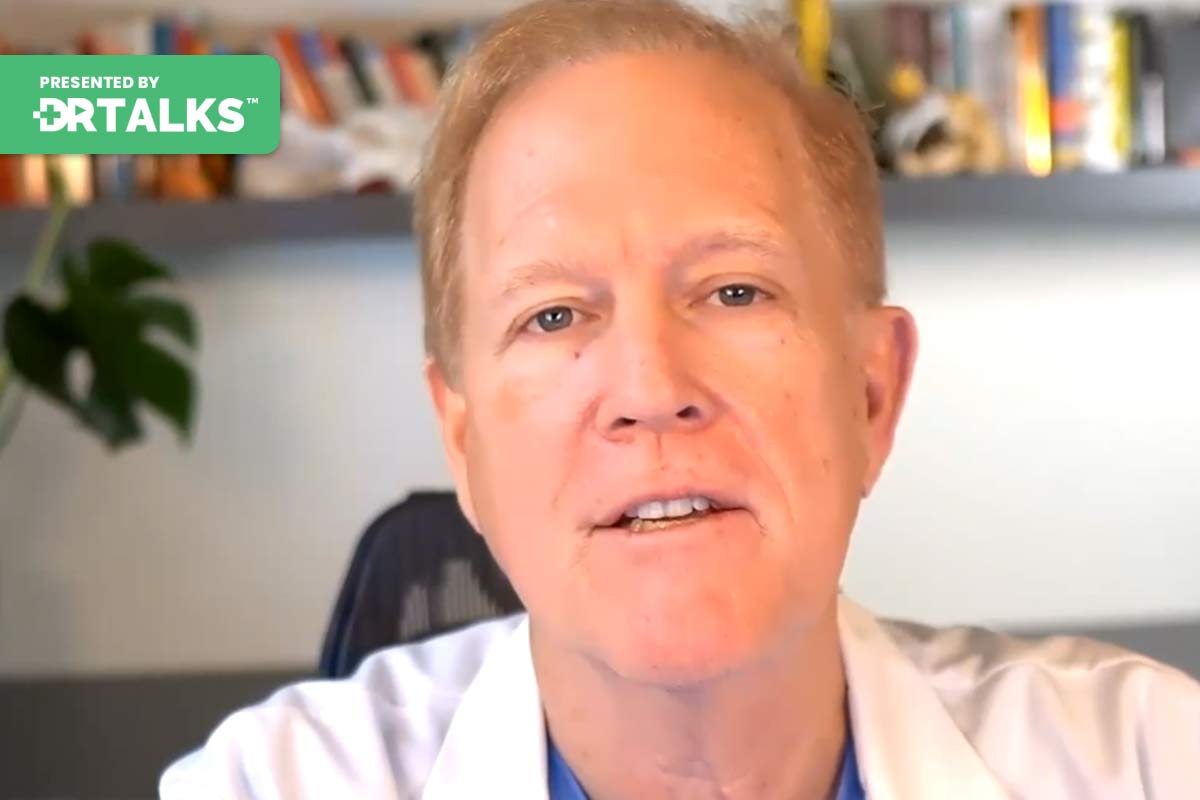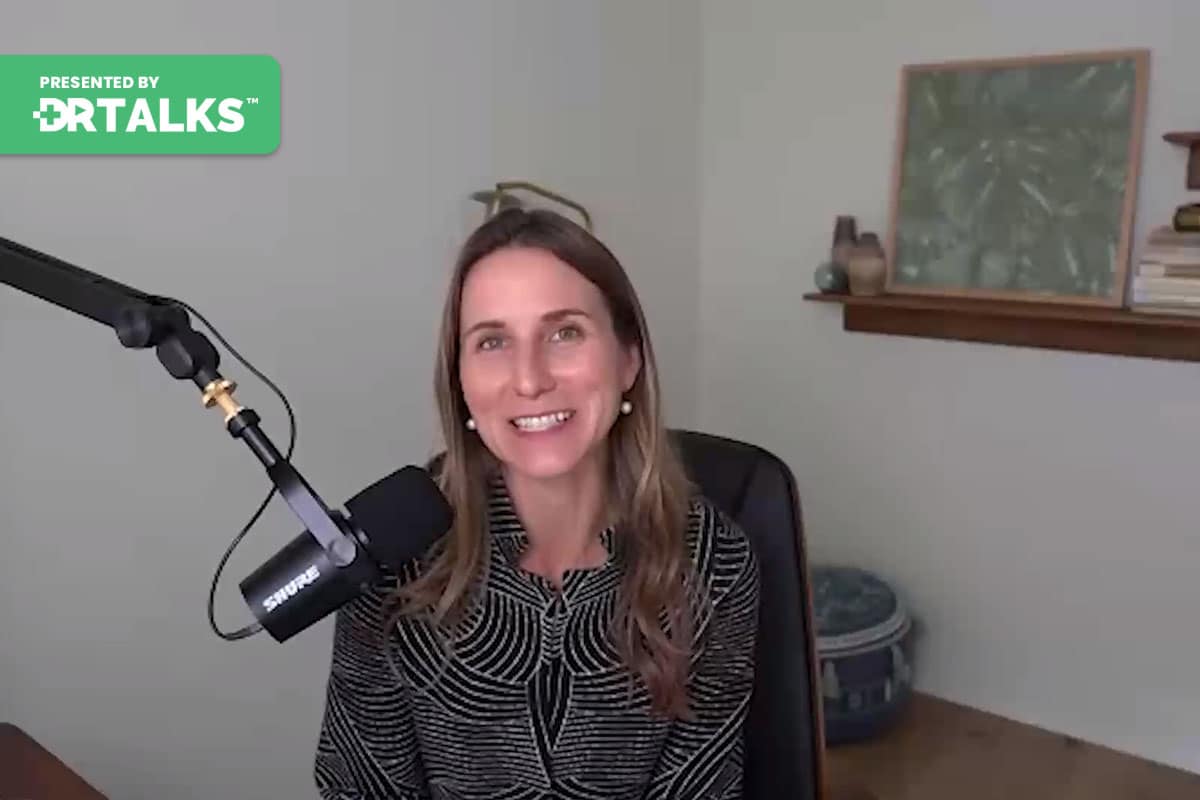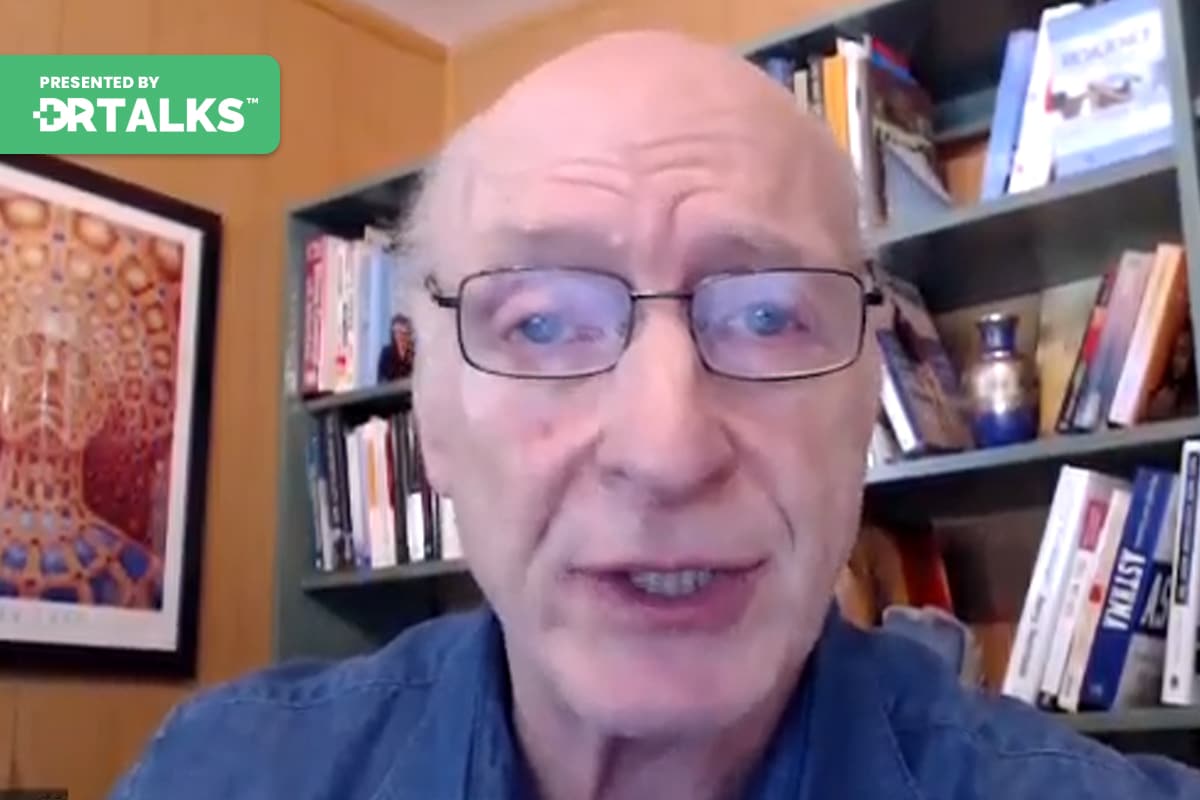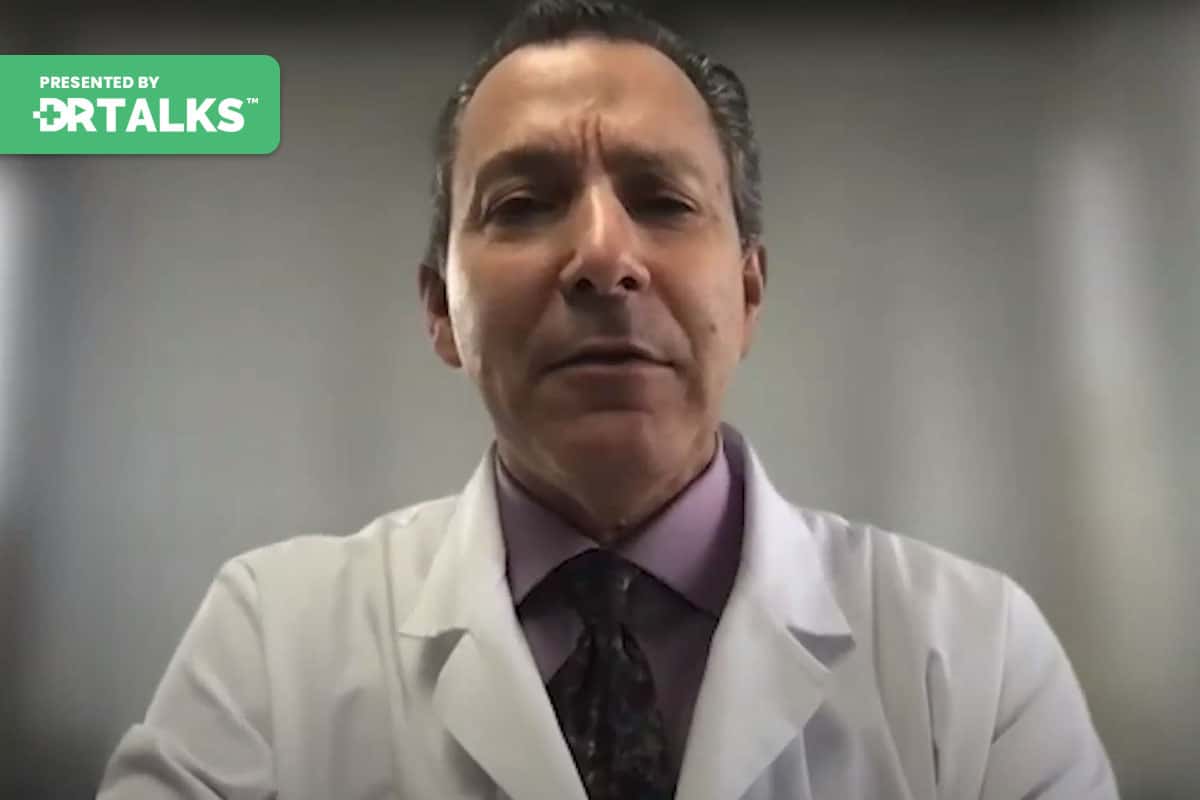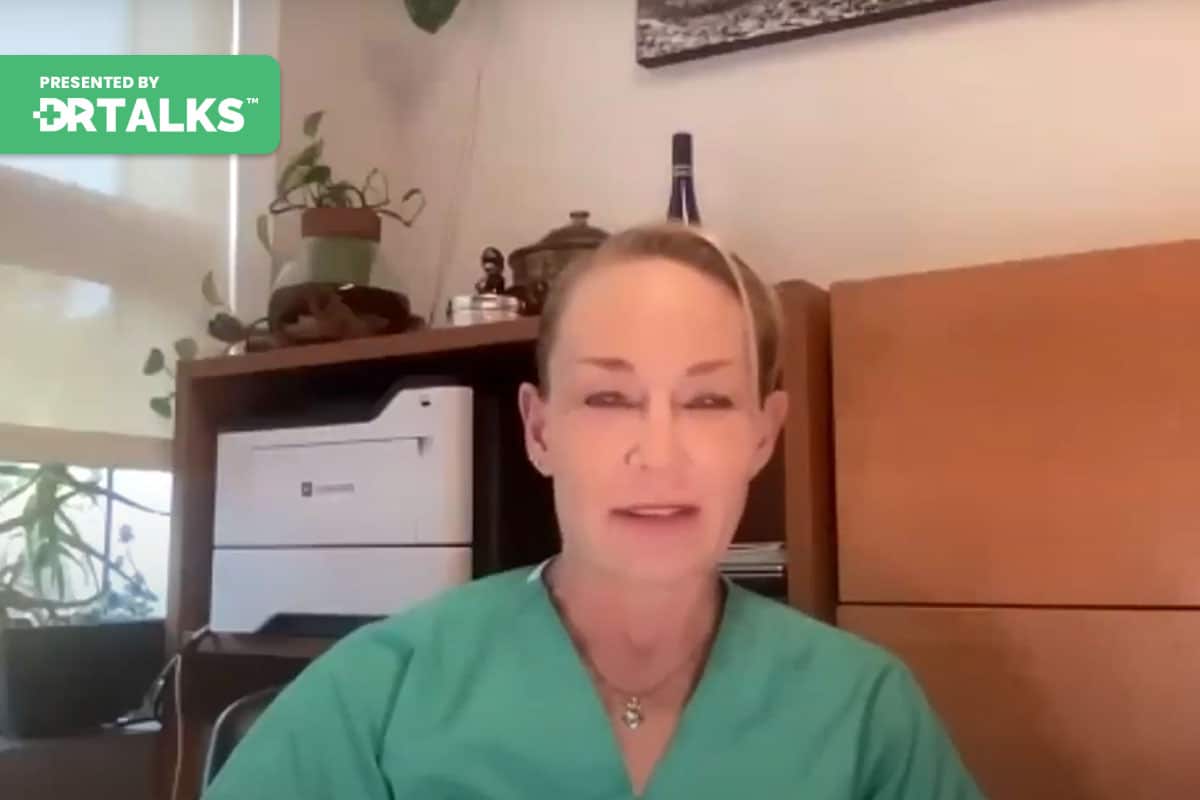Join the discussion below
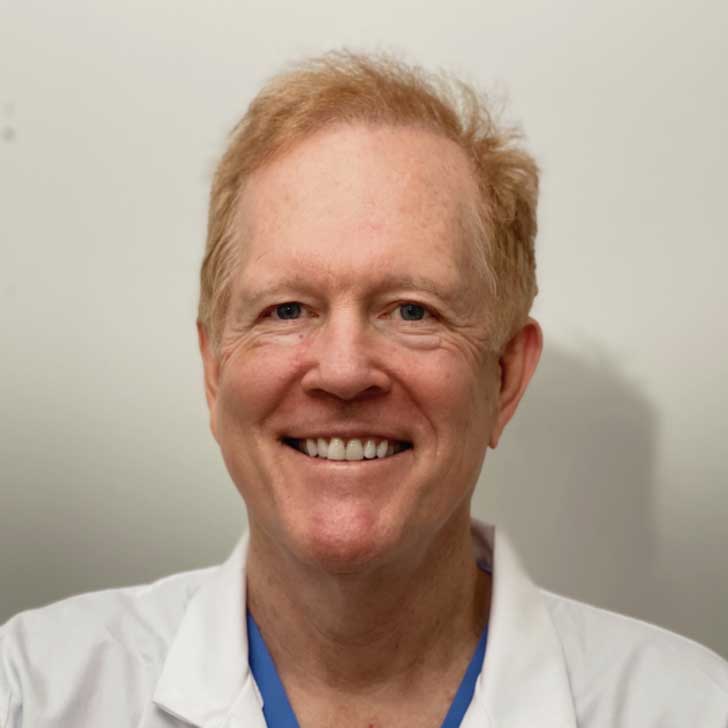
Robert is full Professor at a leading medical school and Chief of Neuroradiology at a large medical network in southern California. In addition to being a practicing physician, he is author of over 200 peer reviewed scientific papers, 32 book chapters and 13 books that are available in six languages. Read More
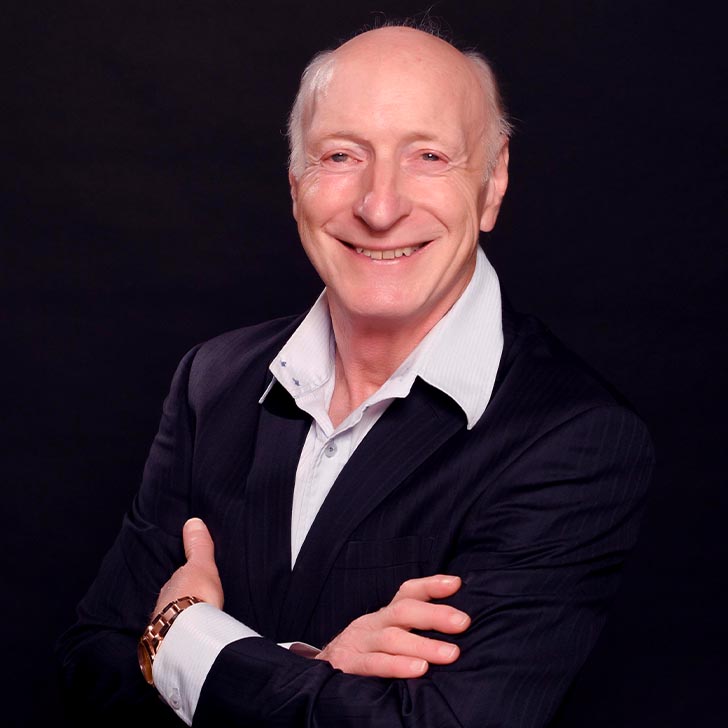
Dr. Stephen Sideroff is an internationally recognized psychologist, executive and medical consultant and expert in resilience, optimal performance, addiction, neurofeedback, leadership, and mental health. He has published pioneering research in these fields. He is a professor at UCLA in the Department of Psychiatry & Biobehavioral Sciences and the Department of... Read More
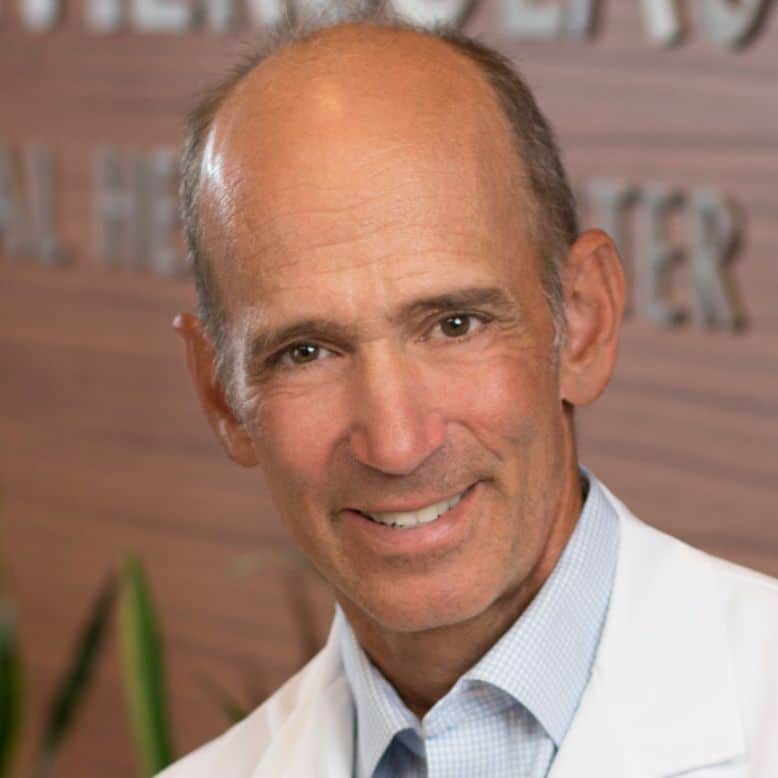
Board certified in family medicine and founder of mercola.com which has been most visited natural medicine site in the world for the last two decades. Author of many bestselling books and credited with being the number one superspreader of COVID truth by the mainstream media. Read More
- Intensive lifestyle measures can reverse heart disease
- What makes Omega-6 fats so deleterious to mitochondrial health
- The benefits of sunlight exposure instead of supplements for vitamin D
Related Topics
Aging, Diabetes, Fat, Heart, Heart Disease, Inflammation, Insulin Resistance, Longevity, Mitochondria, Nutrition, Obesity, Oxidative Stress, Seed OilsRobert Lufkin, MD
Welcome to another episode of reversing inflammaging, Summit body and mind longevity medicine. And I’m your host, Dr. Robert Lufkin, my co host Dr. Stephen Sideroff is joining us. Hi Steve.
Dr. Stephen Sideroff
Hi there Rob. It’s a pleasure to be here for another interview. These have been gone. These are just chock full of great information. I’m very happy that we’re making this available to the public.
Robert Lufkin, MD
Yes and today’s guest I’m especially excited about. He’s board certified in family medicine and founder of a website, which is one of the most visited natural medicine websites in the world and also the author of many best selling books. Dr. Joseph Mercola. Hi Joe, thanks so much for joining us today.
Joseph Mercola, DO
I’m glad to be here Rob. Thank you for inviting me.
Dr. Stephen Sideroff
Yes. And now we appreciate the time you’re taking to help us educate the public and to get us started. Uh it would be great if you can tell us a little bit of how you got into the area, what turned you on about doing stuff and longevity?
Joseph Mercola, DO
Sure, it’s always been a fascination of mine and that’s one of the reasons why I went to medical school because Imagine I wanted to get people healthy and well not to treat disease, like almost all my other classmates did and that was fine. That was they want to do. But I was interested in keeping people healthy. Uh was one of the only people in the class that perspective. So I’ve always had that passion. The problem is as you well know, I mean, Rob going to medical school, they don’t teach you how to do that because in 1910, thanks to Rockefeller, John D. Rockefeller who actually died not too far from where I live, worked with Carnegie to initiate the Flexner report, which literally changed American medicine forever and made it more of a pharmaceutically based component. So we’re all brainwashed with that indoctrination. We go to school and we really have to take independent efforts to acquire the knowledge to understand the true biology of how your how your body functions in order if you’re going to optimize health and prevent disease, because conventional medicine doesn’t understand in any way, shape or form, they only prescribe symptomatic mandates that invariably shorten your life span.
Robert Lufkin, MD
Yeah. Before we dive into this and I’m really looking forward to it, I maybe we could take a moment and just sort of step back and give us your kind of conceptual framework of aging and longevity. In other words, why do we age? What causes it from your point?
Joseph Mercola, DO
Well, it’s a long, complex could answer a question. It’s a long, complex answer, of course. Abbreviate because of time constraints. But from my perspective, I believe it’s foundational related to optimizing mitochondrial function. The mitochondria of course the powerhouse of the cell where they’re believed to be primordial bacteria that somehow hybridized into ourselves? And we have quite a bit of them, How many, how many do we have, how many, how many mitochondria to have in our body?
Robert Lufkin, MD
Good question. Uh what at least tens, tens per cell or hundreds per cell.
Joseph Mercola, DO
Yeah, yeah. So that adds up if you have, if you count the cells, so we’re looking at not trillions, certainly not billions, not trillions quadrillions like 40 quadrillion. So some cells, especially in a certain section of the brain substantia nigra can have up to a million, two million of these mitochondria because the energy dense and in any area of your any tissue in your body that requires much energy requires some other country because they produce this. And in fact an interesting book by nick lane sites that the human body and I think our cells produce are 10,000 times more energy energy dense than the sun, which is profound. So if you’re not creating energy you’re just not going to stay alive and very well because all the processes that you require for life are impaired. So I really think and and that relates to usually excess oxidative stress, which is one of the things I want to talk about that is not widely known or appreciated.
So, so I really focus on strategies that optimize mitochondrial function. And usually that’s interestingly enough, pretty simple and basic because you know, we’ve all been around long enough to under to realize that staying healthy is foundational, pretty simple and and it really resolve involves on principles to replicate what our ancestors were doing prior to us achieving the convenience of modernization. But that convenience comes with a lot of downsides that invariably Most of the time contribute to our, the shortening of our lifespan. So, and interestingly a lot and you know, we’re both were volunteering longevity. Do you know what happened to the lifespan of the United people that live in the United States in the last year? Now if it changes and goes down by .1 or .2 years, that’s considered really significant. What happened in the last year? What happened to our longevity?
Robert Lufkin, MD
It actually shortened for the first time in recorded history?
Joseph Mercola, DO
Yeah. The biggest drop, How much did it drop?
Robert Lufkin, MD
I don’t know, it was a couple years, 2-3 years years.
Joseph Mercola, DO
That’s a whole other conversation. But you know, it’s just uh an acknowledgement to the point that once you start violating practices that are intrinsic to the way our ancestors lived. You’re gonna have complications. And we made some big violations last year or two that contradicted that strategy and we’re paying the price so it moved just backwards. And it’s never that we’ve never had a drop like that recorded, I believe at least 40 years or longer. So anyway, that’s a tangent. But you know, hopefully that answers your question.
Robert Lufkin, MD
Yeah. I just want to follow up on that. If I could the uh just to underscore the notion of returning to ancestral ancestral factors, I guess. And it’s several people pointed out that, you know, the 20 century was a time of exuberance about scientific development and, and there was great faith and technology with, you know, landing on the moon and nuclear power. And we got a few things right, but it seems like in the opinion of a lot of people, one thing we got wrong was nutrition and in some ways that started us down on this pathway. But we can uh, we can talk more about that later. Excuse me. Steve, go ahead.
Dr. Stephen Sideroff
Yeah, no, that’s fine. I actually we talk about this decrease. A lot of people attributed to Covid, but would you disagree with that or would you see other factors other than Covid?
Joseph Mercola, DO
Well, it’s clear to me after doing analyzing this data for a few years that it’s not due to Covid other than the fact that it was the Covid jab that contributed to it. Covid almost had nothing to do with this. The average age from someone who died from Covid the infections or SARS Cov two, you know what? The average age was 85-85. That is beyond the average life expectancy. So if anything, Covid would have increased the life expectancy. Covid deaths. Now it was a job, there’s no question.
Robert Lufkin, MD
And even additionally to that, you can see the numbers that were in the largest obesity epidemic in the United States and worldwide in history. More than half the people are overweight or obese were in the largest diabetes epidemic in the United States and worldwide in history and all those things drive the chronic diseases that.
Joseph Mercola, DO
Those are symptoms. There’s many this which leads into the first point I wanted to discuss because there’s a lot of confusion on this. And I did read your new book that the lies they told me in medical school was
Robert Lufkin, MD
The lies I taught in medical school.
Joseph Mercola, DO
Okay. It’s even worse than I thought it was a good book. But it’s, you know, really appreciate all the time, effort and energy you put into this and really the journey that you took because it’s pretty rare for hardcore academic like yourself to convert over to the truth of biology. They just don’t get it. I don’t know the reasons for that, but you’re an anomaly. So thank you for making the chip. But the mission in that book and in most books like yours is that the focus is on insulin resistance. And I’m a there’s no question insulin resistance is an issue. But the common belief that it’s mostly sugar that’s contributing to that and sugar is a minor player, an absolute minor player and in fact, we need carbohydrates a lo and I’m a big fan of ketosis and intermittent fasting and even regular fasting for people who are overweight. But the real driver from my perspective, review of the literature is not the sugar, it is the fat, the fat that were eating in some ways.
The low fat diet to the 50s which caused just enormous tens of millions of deaths, maybe probably hundreds of millions worldwide. What because of the mistake they made with? Because they in some ways it was good because low fat is part of the solution. But it’s a specific type of fat. It’s the omega six fat. The polyunsaturated omega six is commonly derived from seed oils or vegetable oils that they’re called. Which is they try to pretty it up because vegetables have a good uh perception of health. But it’s really seed oils and nuts to for the most part but the seed oils, 80% of the fatty acids in them is a fat called linoleic acid because it’s a poly and saturated fat, it’s very susceptible to oxidation. And this oxidation generates the fat itself isn’t dangerous. But when it gets oxidized or damage and and things that would oxidize it would be like life could do it or pressure or excessive oxygen. And this is it generates toxic metabolic byproducts which cause free radicals and then damage your tissues like your uh cell membranes, your D. N. A. Your proteins, stem cells, mitochondria would probably be one of the most important one. And there’s a very specific fat that’s only available in your mitochondria. And I bet you know what that fat is Rob. What do you remember that with that they call it that.
Yeah, it’s called cardiolipin. Cardiolipin is the we’ve all seen pictures of the mitochondria and they’ve got these little curves in them, right? And that curve is the chris day. And that the reason that curve occurs is because of a very specific fat called cardio lip in and the only place in your body, it’s in your mitochondria. And the reason that’s important because if you don’t have that curve these complexes that uh cause your mitochondria to produce the energy, there’s five of these complexes. They become separated. The curve pushes them together and it makes the trans the transfer of electrons and the production of a teepee much more efficient. So if you may and that the cardiolipin is instead of a trick illustrates like the quadruplets, right? Because it has like four tales of fatty acids that and these fatty acids are composed of fats that are common in your diet.
And if your diet is composed of a high level of this omega six fat, it saturates this car with these with the Oleic acid and that then that’s just like it’s like tinder and a fire. It’s like that you make or kindle or kindle but kindling you know to to start a fire. It’s just it’s like ready to explode. And then there’s certain items in which is another issue. I don’t know if you have time to talk about. But iron when you get like is real common when people have high levels of iron, we get iron and high levels of linoleic acid, it’s just a recipe for disaster and causes metabolic dysfunction. You know, probably wonder, well, you know, we all know, see those are bad. But the problem with it is is that we don’t know the prevalence. So, and I mentioned earlier that, you know, my focus is seeking to replicate ancestral patterns. And if you go back to 1860 you’ll find that the amount of linoleic acid in our diet. This is real, very important number was between one and 2% 1 and 2%. Now, omega six is like acid specifically is considered, although I disagree with it to be an essential fat. I consider to not be an essential fat because newer studies prove it. I mean, you could have like a few generations of animals without any omega six and they do just fine, but It’s almost impossible become deficient in Omega six fats because almost every food you have has it. I mean, you have to have some uh industrially processed diet to have a diet divided by mega 60 any food you’re going to get it in there for the most part. So one or 2% before 18 60 18 60 they develop the technology to process industrial process seeds and it’s a long story one time to go into, but and and in another 40 years ago. So up until 1900 then they started to emerge to become pretty popular because even up to 1900 it was a very low amount before 18 60 0% of omega six industrialized these oils and died after 18 61 1900. About 1 to 2%. But then it’s been rising ever since and I’m at the moment. So if it was one or 2% of 18 60 what do you think it is today?
Robert Lufkin, MD
It’s orders of magnitude more.
Joseph Mercola, DO
Yes. That per 100% correct. 20. A minimum of 20% and as high as 30% depending on what your you know, which population are you looking at. So when you get levels 10 times higher, It’s an absolute prescription for disaster. And I’ll tell you one of the reasons that it contributes to obesity and one of the you know, we used to think, I’m sure this is a factor. I used to teach that if you’re insulin resistant you are metabolically inflexible, let’s get the numbers to because there was a study that was published in July of 2022 Journal American Cardiology. That was an update of the previous study that was done on N. Haynes data that showed how Many people in the United States are metabolically and flexible and by metabolically flexible. I mean, they’ve lost the ability to seamlessly convert or transition between returning between burning carbohydrates as our primary fuel in burning fats. So what do you think that number is? And this was based on enhanced data from 2018. So it’s already four years old.
Robert Lufkin, MD
Well, I know that I know that study. It’s 88% or met.
Joseph Mercola, DO
No, no, no, that was the 2000, that was 2016 That was the previous one. You’re right, 88%. So what did it climb up to 93% now, folks, that’s 14 out of 15 people. And that data is four years old and rob you just you decided to study before that was 88%. So that in four years it went up 5%. So most likely it’s over 95%. So 19 out of 20, if today 19 of 20 of us are metabolically inflexible, were metabolically injured? We are far from optimally healthy. That is a shocking number. So what do I believe is the primary contributor of that? There’s a lot of factors but I really believe it’s this little lake acid. There’s like little to no doubt in my mind that this is one of the big things and I’ll tell you how it does it in a metabolic level, you know, just skimmed over the molecular biology of it. But when you get down to some other mechanisms that unjust and what it does to your appetite. Now there linoleic acid happens to stimulate the endocannabinoid receptors. That’s what it does. So what does that mean? Well we do we have these uh receptors in our brain that are normal that we have endogenous opioids that can be triggered. And that’s normal and healthy because we don’t have them. We’re going to lose our uh mental resiliency but they can be distorted by eating lots of analytic acid.
And in Little Lake acid does something very similar to what cannabis does. So we’re all familiar with those who either smoke or eat cannabis and they get the munchies. Well this is because it’s stimulating these receptors. Well, Little Lake as it as it does the same thing. And there was in fact a drug that came out that was used to treat obesity and it blocked these receptors. I think it was called Ramana Van and it very effect it cause it was like a miracle for weight loss. It consistently and routinely dramatically reduced people’s weight. The only problem is A big portion committed suicide. So they had to take it off the market. So that’s the mechanism that contributes to this increase in appetite. In addition to the course that the little like asked will buy it in and of itself will increase in insulin resistance. No question about it. And I just don’t have time to go into the mechanism for that now.
But it increases insulin resistance and it doesn’t mean that if you are one of the 19 of 20 people in the US who are overweight or diabetic or pre diabetic or have metabolic syndrome that you shouldn’t restrict carbohydrates initially. I’m a big fan of that. I think there’s value to that. But if you’re not paying attention to your omega six fat, like so many people did when they were doing keto, you know, if it was fat, it was fine, nothing could be further from the truth. You got they were eating seeds and nuts and there’s only one nut. There’s only one nut that is not extraordinarily high in uh either omega six carbs or ox ill. It’s you know what that nut is important that you got to know you would have it. That’s 100% macadamia nuts. That’s really the only that I think that should be taken or consuming any any reasonable quantity. That doesn’t mean you can have one or two almonds. But almonds is one that has all three. It’s high carbs, it’s high oxalate and high linoleic acid. And people are drinking almond milk through the roof thinking it’s a healthy thing. It’s not.
Robert Lufkin, MD
What I totally agree with what you’re saying, I want to get in this further. But just to back up and underscore what you’ve said. I thank you for the plug for my book and I but I do agree with you. I have a confession to make to everyone here, I am a recovering processed junk food addict and the two biggest things that processed food have that drive my addiction are refined carbs and sugars basically. And then seed oils and the linearly like acid. And it’s funny, that’s what makes processed foods processed. And I totally agree with you on that show. It’s a great thing. I was, I thought you were going to tell the story, the German submarines and Crisco oil.
Joseph Mercola, DO
That’s a but it’s just huge and, and most people don’t get it and you know, you can do the keto and stuff and so a lot of the other useful strategies. But if you’re not obsessing about this and I really believe you need to obsess. And here’s, here’s another reason why it’s so much more dangerous than the carbs because if you have a carbohydrate and you go on a binge and you have a lot of sugar, you know, just pure sugar, not the seed oils, you know that that’s gonna spike insulin, spike your sugar and secondary spike insulin. But then it’s gone. It’s not hanging around. It is gone within hours a day at the most. How long do seed oils stay embedded in your cell membranes? What is the half life of a seed oil? That you just year over 650 days. So literally it’s gonna take you seven years to get it out of your body. Seven years.
Robert Lufkin, MD
Maybe, maybe Joe at this point if you don’t mind just for our audience who’s listening now they, some people may know what seed oils are, but it’s a little confusing like which there’s some oils that are in the lake acid. If you could go through that.
Joseph Mercola, DO
Yeah. Actually the simplest way to do is to go to my site, Which actually we basically removed all our articles. I mean it’s been around for 25 years. Most people know that we have to delete 15,000 articles in August of 2021. Sorry and so now we have a substance like where all those articles are and you can just go to that sub state just type in a colon settles and you’ll find some the reason I’m not yes, I’m plugging my sight but I’m plugging it to give you information that I can’t easily describe on this podcast. So we just typing that you’ll get an article that has beautifully illustrated grab Of the different types of seed oils and not only the grass, but the concentration of the little a gas in each one of those like sunflower safflower at the top. And then some people think olive oil is like a magic bullet and they should, you know, you can’t have enough of that. Or even avocado oil. And I’ve got to warn you about those. Yes, they’re lower on the list. But that’s if you get the real deal pure stuff, 80% of both olive oil and avocado oil are adulterated with seed oils. So it could be worse. So now you got, if you’re not spending 40 $50 a quart for this stuff, you’re probably not getting the right thing. You have to get them specialty stores and you have to be really diligent about getting the real deal. But even if you’re doing that, I still think most of us don’t benefit from having that. Yes, you can have if you have the real deal a tablespoon a day of uh, olive oil or, or avocado oil is fine.
But normally you want to avoid those primarily because of the alteration issue, but it’s still high in linoleic acid. So what do you use? Because we do need fat in our diet. No question, you need really saturated fat is what you need. And saturated fat has been built. And I can remember when Oz first man on the show, like in 2012 and that we had a contention. We had an argument about this because these of course the cardiologist and he was a big believer in the evils of saturated fat. But I think more of us have come to appreciate that it is healthy. So the saturated fats that are healthy and low in linoleic acid are mostly animal fats. There’s two primary ones. One would be guy, which has a much higher smoking point. So it’s much better for cooking than butter. But you can use regular butter too, they both have about the same amount of linoleic acid because the only difference between the two is the most of the proteins removed and g uh and then the other one would be beef tallow. A lot of people use lard, but the reason you want to stay away from two animals that are typically perceived animal foods as healthy, is that the relatively high in the lake and the chicken and pork especially they weren’t but 18 60 we got the ability to industrialize the food supply.
So they’re now fed these seeds and grains. And uh for the most part they have they only have one stomach. So they’re just like us, their model gastric. And if you have multiple stomachs, like a room in it, like a like a cow or deer, buffalo lamb and then you have like a bio hydro nation chamber so that you can take an unsaturated fat like little lake asset and you can actually add hydrogen bonds to it, which we can’t do really well at all. So if we can’t do that, we store it. So chicken and pork, you really do want to avoid. Even if you’re raising them yourself, you’re raising yourself, you could potentially could be okay but you had to feed them specially has been completely different. You can, if you give your chickens organic Chicken food, you know, or poultry meals, it’s gonna be, it’s gonna be really high, little lake because they these they animal science is even worse than human science that they don’t understand little ache acid I viewed as a contamination. I’ve, you most like acid in excess of 2% of your total daily calories as metabolic poison, a pure metabolic poison. And I just avoided like the plague. I try to be as low limit access as I can because I just understood this about two or three years ago. So I still, I still have more than I would like it and optimizing myself and trying to get rid of it. And it’s a slow process. So, I think that covers because I want to go, we have a limited time. I want to go over a few other important topics I think.
Robert Lufkin, MD
Yeah. So in addition just to sort of wrap up the omega six fats and, and linoleic acid also as someone who wants to avoid the downside of those with the inflammation, etcetera. So I avoid the compounds, the seed oils that have high linoleic acid and other foods. Are there any other actions I should take as far as the linoleic acid aspect of it?
Joseph Mercola, DO
Well, the the simplest one is to make the conversion and anyone who’s watching this, who doesn’t admit that they were addicted to processed foods like you like me Then you’re probably telling yourself a fib because all of us were, I mean there’s probably a few people out there, probably a handful who had like wonderful parents understood this from day one. My parents certainly didn’t. So you had to learn it yourself. And even when you learn it yourself, I mean I didn’t really fully appreciate this until really a few years ago and I had a pretty healthy diet, but you know, you just can’t really should not have processed foods. And the major, I mean, no one will disagree that even conventional medicine doctors know that processed foods are harmful for you and that they, most physicians that are naturally oriented will think, well it’s the sugar. But if you look at processed foods, there’s usually twice as much seed oils as there is sugar. You know, I already mentioned the the time time factor. So you really, you got to eliminate all processed foods. I mean that is your goal. You just, if it’s in the package for the most part, you don’t want it. And you know, so I’ve got, mean about two or three years ago, I just eliminated pretty much everything.
You know, all processed foods. I mean, uh if it comes in a package, I mean sometimes you have to have it come in a package. Like if you’re ordering academy in, that’s like 10 pounds you know, you’re gonna come in a bag, right? It’s not like it’s not processed. So you know, so no, no. Soc sunflower seeds pumpkin seeds, you know, these, these are ostensibly viewed as health foods and they’re not now you can have a teaspoon or tables when you’re gonna be okay, you just don’t you just don’t want them in large amounts. So there’s an app to sort through this and uh it’s called cronometer. CRONOMETER.com was actually developed an anti aging guy who’s just passionate about health and it’s really the best nutrient app, nutrient calculator app out there is free and you could if you were really careful about entering your data, like with the kitchen electronic kitchen digital scale and you can enter in there and it will tell you to the 10th of a gram how much little like acid you’re getting.
And I had Aaron who was the developer of the site uh integrate a omega 6% omega six calorie clock in there. So it tells you precisely how much what percentage of your diet is omega six calories. So it’ll give you, is it 2% is it 15? Is it 30? Is it 40? You know, remember it should be under 2%. Really, really hard to do. So, you know, if you’re curious you can figure it out for free and then you’ll not only figure it out, you can click on the omega, the omega six fat thing, right click on it and it will show you in in descending order descending order the highest levels of mega six fat that you are currently You are eating. So you’ll know you’ll know exactly where your hidden sources of Omega six, because no one’s going to tell you, you gotta figure it out yourself. You have to really, it’s your responsibility. You are your own doctor ideally. And you hire your physician as a consultant. He if she is your consultant, they’re not your dictator or gateway to health.
Dr. Stephen Sideroff
Those are very good points there. Thank you. Thank you. Let’s we were talking on the micro level, let’s see if we can just for a moment shift to the more macro and you’re talking about mitochondria and it’s uh role in producing energy. I approach this from a different direction on resilience, behavioral resilience. And I’m wondering how you see that playing a role in, in the work that you’re doing or how you the picture that you see.
Joseph Mercola, DO
Well, it’s not it’s not a goal that I seek to achieve. It’s sort of an artifact or a side effect of doing the right things. But you’re right, your your resiliency goes through the roof, your ability to recover from the, the life’s ups and downs and stresses, so that that’s the side of the benefit of doing this type of program and one of them is eliminated, omega six, that sort of, and and then, you know, and then the other one is getting into the sun and you’re gonna say, well, that’s gonna cost sunburn and skin cancer. Well, you know, probably one of the biggest contributors, the biggest contributor to skin cancer. You know what it is, It’s omega six in your diet, that’s what’s causing skin. And it’s not the sunshine, the sunshine is just the catalyst, but it’s like, you can’t, if you fire a gun and there’s no bullet in it, it’s not gonna do a thing. Right? Well, the bullet is the omega six, that’s what the omega six, So you don’t want to put that in your skin. In fact, your likelihood of getting sunburn reduces dramatically once you start reducing your omega six content, you just probably won’t get burned again.
Now you can, but it will really radically reduced and instead of getting burnt, you’ll get tanned, which is what you, what your body needs. So that is one of the other primary strategies I widely embrace and encourage people to consider adopting is to get into the sun an hour a day every day around the timing is so important. Now, you can do sunrise looking and sunset. But if you want to get the metabolic benefits from the sun, you need to get out there around solar noon and for daylight savings sign, which is the summer, that means it’s one PM for most people, not 12 o’clock. So, and then, you know, it’s either from 12 to 2 is your window and then with minimal clothing, because why the obvious one is you’re going to increase your vitamin D. I have not swallowed vitamin D. In 15 years. Do you know what my vitamin D. Level was? This year I hit a threshold. I never thought I would hit without any supplements for 15 years. I guess.
Robert Lufkin, MD
What I hit. What was it?
Joseph Mercola, DO
100 I got 100 without taking any supplements.
Dr. Stephen Sideroff
Just do you use a sunscreen?
Joseph Mercola, DO
No don’t be silly in the sunscreen. Now there are appropriate times where a sunscreen is indicated but you have to use it carefully. You don’t want to use it if you use the sunscreen you’re not going to vitamin D. Anyway. But you’re the skin, your face is pretty thin and it’s sensitive to photo aging. So I would keep your wear a nice broad brim hat so that you don’t have the sun. You want your face always in the shade would be best. But the rest of your body you take off your shirt, wear a sports bra, you need to and shorts and get out there and it’s gonna be. But so it’s not just vitamin D. There’s like five other things that make a big difference. Now we all know what’s important for sleep is melatonin right? And your body makes it. But in the pineal gland. But where is more melatonin made in the pineal gland. Which is because the pineal gland only makes 5% of your melatonin. You’re gonna like this Stephen, Rob. 95% of the melatonin in your body is made in your mitochondria in your country but not indiscriminately it’s made when it’s exposed to near infrared radiation.
Guess which wavelength happens to be the most predominant one in sunlight? Only 7% of the sunlight is UV. B. Or U. V. Might be it might just be UV, I don’t know, but it’s only 7%. So that’s a relatively minor person. 40% Is near infrared 40%. So you would think that if 7% makes vitamin D. If something that has more than five times almost six times as much energy in it. That it might be important for human biology. Well it is you know and melatonin I believe is the most supreme antioxidant in the body. Now some people might dispute and say screw metathione what does my what is melatonin do? It spins off glutathione. But here this is the beauty of the way the body is made by your mitochondria making melatonin what spins off most of the free radicals in your body mitochondria. That’s where all the damage occurs. And talked about cardiolipin. So you gotta keep it low in little lake acid. So if you need an antioxidant to stop this free radical production in the energy producing cells or modules of your body wouldn’t be nice to have this antioxidant there and that’s what your body does. It makes them the melatonin right? Where it needs to be because some of the most dangerous pernicious free radicals hydroxy if you’re only a billionth of a billionth of a second.
So there’s no way in the world to effectively get anti access down there would take minutes hours to get there. You know, let’s get into it. It’s gonna penetrate the cell membranes got penetrated mitochondrial cell membrane to get to where it needs to go. So your body makes it for you if you’re getting exposed to near infrared radiation. And that’s one of the reasons why I think most of us are well served if we live in warmer climates uh any of us can’t for a wide variety of reasons. But if you are unable to you can stimulate this by simple things like really high quality near infrared radiation bulbs. My favorite is a company called sauna space because they have a very specific type of bulb that actually is almost identical to what the sun produces. Most infrared bulbs are producing about 15% near infrared. Their bulbs are producing 40% which is, you know, pretty much precisely what the sun does. So and then you can you can actually you integrate them into a sauna or you can like just put it on a light, especially in the winter. And because you said well I don’t need it because I’m in an office or you know a building all day where I have all these windows block near infrared, it does not come through because almost by municipal building codes.
You have to get exclusion but they all have this low E and these filters and the glass that prevent that from coming through. So you’re not getting it, you have to be outside to get it or have special window glass which virtually no one does. So that’s or augmented with these types of bulbs. So that’s one the other thing is and you know it does is uh I’m sure you talk about testosterone being really important and many men and women too are also low in testosterone but guess what sun exposure does? It increases your testosterone level for free, no charge, no charge. It’s crazy. So I mean it’s just and then nitric oxide, which is really important for optimizing if you have high blood pressure, you know, increasing attractions will cause your blood vessels to dilate, which helps lower your blood pressure. So sun exposure does that through both the U. V. And and the infrared. And uh it makes structured water. I know if you discussed or review structured water before but a lot of people drink it. But your body needs it to make this kind of like structured water in your body is is like a storage battery. It just builds up this energy that your body uses to make your blood flow through really tiny vessels like your capillaries.
So don’t find that for our audience if you don’t mind joe structured structured water is is Gerald Pollack is one of popular. I said he’s got a book, he calls it Easy Water, which is he stands for exclusion zone water. He’s a biophysicist out of state of Washington, has done a lot of the major research on water. And it’s like the fourth phase of water was what he calls it. So it’s like obviously liquid solid or gas. But this fourth phase really, it’s a phase of water where it’s captured the energy that caused it to convert to structured water. And and and then your body can use this stored energy really like a battery to distribute it around primarily to move your blood through really tiny spaces. So, but it’s really important people drink it. I’m not a big fan of drinking it. Although you could it’s not gonna hurt you, but it’s really important for your body to make it. And again, going back to the point, what did our ancestors do now, they didn’t drink structured water. They might have if they got it from a spring, but it was, you know, it wasn’t consciously they were doing, but they were outside all the time. And most of the time. And you know, we grew up in the subtropical tropical areas. I mean our ancestors did evolve from those areas. And uh that’s what they were supposed to.
So it seems sense that our biology which changes very slowly as most people understand. It doesn’t change in decades or centuries even changes tens of thousands of years even longer for it to get unless you’re doing genetic engineering which we’re both not fans of I’m sure. But it changes slowly and and if we can take time to reflect on what those with the optimal circumstances where what our biology was designed for and we can replicate that. We’re going to optimize the intrinsic capacity that our body has to become resilient to obtain high levels of health. And we just knock out these barriers and process food being one of the biggest, you know you knock that out. It’s like impossible to get the hell optimal healthy eating processed foods. So those are two of the big ones. For sure.
Robert Lufkin, MD
Yeah exactly. That was just circling back to a lot of our audience is interested in N. A. D. Some people spend you know, a large amount of money every month on N. A. D. Supplements to get get to the mitochondria like you say, you know, that are so essential for longevity and health. What how do you feel about N. A. D. Supplements and their role?
Joseph Mercola, DO
Well let’s describe what an A. D. Is first when anyone who went to took biochemistry in college or med school will well recognized in the Krebs. Cycle has been known but it wasn’t really until 2000 that. David Sinclair who’s at M. I. T. At the time in linear. Berardi’s lab discovered that N A. D. Was actually a fuel, a molecule that’s being used by your longevity proteins or cartoons. And if they don’t have this fuel, they don’t thrive in your ability to to achieve longevity is really radically diminished. So he popularized the notion that any of these important molecule, we need to pay attention to the problem with it in a. D. And why there’s so much confusion in space. It’s an unbelievably perishable molecule and incredibly difficult to ask site. There’s literally a handful of labs that can do it accurately. You have to be a research lab. And even if you are research lab, you have to to measure it, you have to go to the research lab and they have to draw the blood there and process especially otherwise, the measurement is invalid. It’s really hard molecule measures so as a result of that, people can’t do all these studies to figure out these things. And you know, it really limits the amount of knowledge that we have out there. But nevertheless, there are people who do it and one of the people who has done some good work on it is Nicola Conlon, she’s a molecular biologist out of the UK and came to the same conclusion I did, which is why I like her so much. But she figured out that these, any D precursors as you mentioned are very expensive. It could be 100 100 at least 100 in most cases. And sometimes several 100 maybe even more dollars every month. Not a year every month. So and examples of those would be nicotine, my driver side, which became popular initially.
And then more recently nicotine nucleotide or N. M. N. Which is what David Sinclair is promoting. But what Nicola figured out was that your body actually makes recycled in A. D. So you literally 95% of the energy in your body is recycled. And so it made a lot more sense to look at that your body’s ability to regenerate that. And there’s a specific enzyme called N. A. M. P. T. That is the rate limiting enzyme, the bottleneck for producing N. A. D. So if you do steps to improve that, then what you can do is increase your energy pretty dramatically. And one of the most important steps is time restricted eating because and circadian rhythm optimization because time restricted eating in circadian rhythm optimization are integrated, connected. So 90% of the people eat more than 12 hours 8 90%. And I think it’s like even higher levels if you’re obese, it’s crazy. 15, 16 hours a day, 15 or 16 hours a day. They’re eating. The only time is when they’re sleeping so that your body was not designed to do that.
And actually we didn’t do that. We went through here sometimes for feasting and fasting and most of us are not doing that today. So that disruption when you’re not having that restricted eating window about six or eight hours is ideal for most people. Then you’re going to disrupt your circadian rhythms. So that’s one of the things that will also slow down the N ap N A. M. PT enzyme that causes your body to make any D. So so if you do that thing and you exercise really good, especially when you’re fasting. Like the best time exercises in the morning. Uh when you’re fasting, you haven’t eaten for maybe 16 hours or so. And then you then you’re really you throttle up this enzyme in ap is ready to just crank out in a. D. And then the other thing we figured out is that a very small amount. See when you, when your body metabolizes N. A. D. That determines do with apart proteins, they turn it into they take any D.
That converted to nice cinema which is similar to Nice but it’s different. The nice cinemas won’t make you flush like niacin. But if you but you need very tiny amounts of this nice cinema because if you take a large amount like 100 or 500,00, 1,000 mg. That has a negative impact on your Sirtuin proteins. There’s a negative feedback loop that occurs. It actually suppresses your makes things worse. So we we found out that like 50 mg for most people which is you know, again not made typically most you wont find nicer than my listen. 500 but you can get it as a powder if you get a power it’s like a 64th of a teaspoon. You take that three times a day. That is usually. And that is if you’re doing the time circadian circadian rhythm optimization then you’re really going to activate your I. D. And it’s gonna cost you, I don’t know if you’re sitting down $7 a year to do this. $7 a year, you know.
So I just and passionate about finding simple, inexpensive and preferably free ways that you can hack your way to health and prevent the general disease prevent avoid ever having to take a pharmaceutical. I think if you’re taking a drug, I mean you know you want to find a clinician or a skilled clinician who understands these principles that can help walk you through and coach you through getting off of that drug because it’s usually I mean there’s some drugs where you may need it, you know, especially in communities like thyroid medications such but or insulin if you’re type one diabetic, but there’s very few drugs that people really need to take. I mean it’s really the exception and I’m not saying you should never use them clearly. They can be very helpful but they’re their crutches. They’re not the long term solution. Yeah they get at the symptoms. Yeah thank God. You know, symptoms can be really debilitating. They could drive you to suicide. So yeah, they can be really helpful.
Dr. Stephen Sideroff
Usually at the end of our talks, we ask our speakers to give a few recommendations of what they suggest. That would be helpful. But you’ve been doing that throughout the, our entire talk, which I greatly appreciate. You know,
Joseph Mercola, DO
I’m here to educate, inspire and catalyze behavior so people can get healthy, you know, and it’s been one of the greatest privileges of my clinical experience. You know, I transitioned out of seeing patients like 15 years ago because I knew in my lifetime 50,000, 100,000 if I was really lucky to shoot that many patients I’ve treated Indirectly through my website across the world. 100 million people 100 not treated but provided information that’s changed people’s lives. And nothing gives me a greater thrill and joy to do that. Nothing.
Dr. Stephen Sideroff
Can you identify? Wanted to, exciting uh things happening in the longevity field outside of the work that you’re doing.
Joseph Mercola, DO
That’s an interesting question. I’d have to reflect on it. I’m intrigued with the uh, the sorry about that. My email servers were hacked and I’m having to rely on webs. I can’t figure out how to turn off that beep. I apologize. Normally. I do not do that by default. It’s just, it’s a temporary thing. So I apologize for that and I should have sort of closed that tab but the Yamanaka factors I find intriguing. Yamanaka got the Nobel prize I think in 2012 and it’s a series of genes that can be activated that essentially reverse aging. Pretty incredibly, there’s, there’s complications with it and I don’t know that they’ll be able to figure out in our lifetime. But that’s intriguing. It’s probably one of the more exciting components and there’s Sinclair is doing a lot of work on that, but I wouldn’t be the first one to try it. That’s for sure. I like something called the cells which is, I believe the best form of stem cells. I wouldn’t do any other cells other than stem cells other than the cells, which is an acronym for very small embryonic like stem cells, there are much smaller than stem cells there uh typically less expensive to get, you have an unlimited supply in your blood there autologous, which means you get them from your own body. You’re not getting from someone else like a donor.
So they don’t have any DNA mismatches you have, it’s in your peripheral blood. So they don’t have to do a fat biopsy to get them or a bone marrow biopsy or puncture. So it’s a lot easier and there’s not many clinics that do that. It’s probably only about a dozen or so, but it seems to be the ideal type of stem cell. So I think that type of thing is really important. And the other thing that’s not really appreciated. I didn’t have time to mention was just draining your body of blood because most all of us have too much iron. Almost everyone if you’re an adult, unless you’re heavily bleeding female, more than likely 99% chance, you just have too much iron. And that causes enormous oxidative stress in your body, especially if you have anywhere near the type of linoleic acid consumption that most people do and it’s just a prescription for disaster. So and we had that. That’s why I’m not surprised that we had such a radical reduction in lifespan in the last year with the catalyst of the covid. Yeah, because people, they were they were sitting duck waiting to get damaged for this stuff because of the practices they were engaged with engaging in that just essentially destroyed the resilience.
Robert Lufkin, MD
Your point about the transfusion or the giving blood is so fascinating. You know, we all remember donation, donation not yeah, we all remember parabiosis and that and now paper just came out where all you do.
Joseph Mercola, DO
That’s another exciting one. No, actually the parabiosis would be we can pretty much achieve the same benefits something called plasmapheresis. And I think that thank you for mine because I think that maybe one of the most exciting components that’s readily available. Still pretty pricey but holds a lot of promise plasmapheresis because in the parabiosis it’s not so much that they’re adding new things from the younger mice. They’re taking out the junk from your body. And that’s what plasmapheresis can do.
Robert Lufkin, MD
Yeah , that’s such an exciting area. As far as you hinted at with the iron. Giving blood. What donating blood? Yeah. What does that look like, donate? What once a month or what’s uh obviously depends on the person.
Joseph Mercola, DO
Well there’s virtually no one that could donate once a month because that’s 500 CCS. That’s 10%. So usually four times a year is quite a bit. That’s probably most people wouldn’t hardly be able to do that. But at least twice a year, four times a year. Now what I do for optimized is I believe so strong. And plus I have my dad had hemochromatosis because I have a genetic anemia called beta thalassemia. So I get Tennessee to have higher iron. So I typically draw my blood and take out 60 CCs of blood every week. Which equates to about seven units of bloody year. So that’s a pretty rapid way to get rid of it for me. And I said I’m committed to that. Most of us are going to draw your own blood and take out two ounces of blood a week. But that would be, in my view a deal you could do it less frequently. You can do like uh two times four is eight. So you can do eight ounces of blood once a month. And that’s c if you do it slower, it’s more tolerated. You just you just can’t do 560 once a month. It’s I mean you could do it once or twice, but the third time they’re not your because it takes you three months to regenerate your blood. Three months.
Robert Lufkin, MD
Yeah. Yeah, wow. This has been so fascinating. There’s so many things that we we haven’t even had a chance to cover. How can people find out more about the work you’re doing on your website? Maybe you could repeat it for people that are listening to this audio?
Joseph Mercola, DO
Yes. My last name, Mercola, MERCOLA.com. As I alluded to earlier, we had to We have our I mean my site was a treasure trove of information but we have to delete our articles and now we still are articles are only up for 48 hours and we transfer them to our substitute site. So which is just substack.com and type in brickell, it’ll come right up. So. And because of the position of taking in embracing the responsibility of educating people about the dangers of what’s been happening the last two years that the media isn’t exposing. So I’ve been vilified and decried deep platform essentially everywhere. So we’ll offer you two, we actually sued you to just a few weeks ago for doing what they did because they changed the rules without telling us and because we never know no checks or violations, we had no violations, No zero. And they just changed the rules and they said you’re gone because we never put stuff up that violated their terms. We wouldn’t want to do that, you know, because it’s an important platform, but they control system. So anyway, the reason I’m alluded to that is not to brag, but I just mentioned that you’re not really going to find me. I think we’re on facebook and twitter, but they really, essentially we have no reach on there at all. So, But you can, if you go to the go to those you might find. So yeah, you know, there’s a lot of, and I’ve written 17 bestselling books. So those are out there too.
Dr. Stephen Sideroff
We appreciate all you’re doing to help people in their quest for greater health. So thank you very much.
Joseph Mercola, DO
Oh, you’re most welcome. I’m just delighted to have the opportunity to share some of this really important information.
Dr. Stephen Sideroff
Yes.
Downloads

